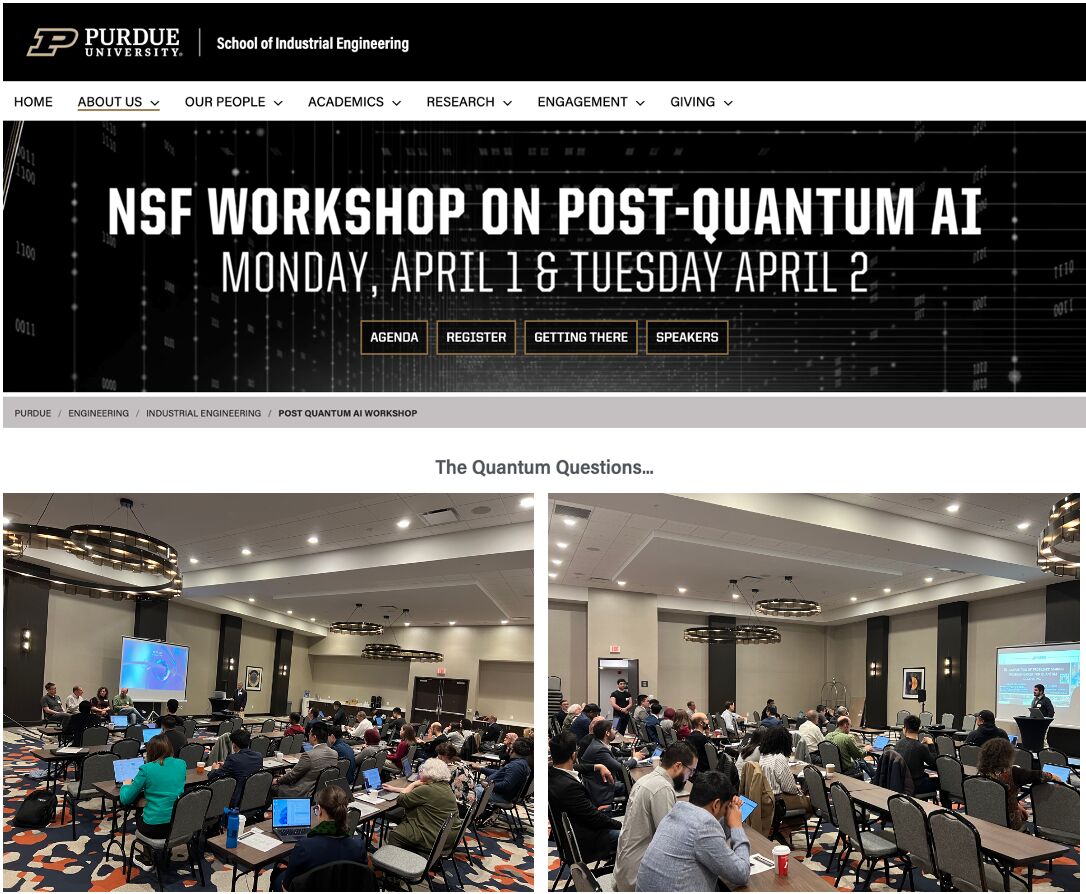Quantum computing’s speed and efficiency have sparked interest in utilizing it to solve pressing challenges facing artificial intelligence (AI), leading to extensive research into the potential of quantum AI. However, in the realm of quantum AI and quantum security, vital questions remain unanswered, such as: what new capabilities does quantum AI enable? and how do these capabilities affect the availability, resiliency, security, and privacy of future autonomous systems relying on them?
At the National Science Foundation (NSF) Workshop on Post-Quantum AI held on April 1 and 2, individuals were invited by co-chairs Tian Lan, a professor of electrical and computer engineering at GW, and Vaneet Aggarwal, a professor of industrial engineering at Purdue University, to address these questions collaboratively. Attendees discussed the current and future trends of quantum computing, quantum AI, and their applications to various engineering disciplines and cyber security, identified fundamental research challenges, and charted a path toward addressing these challenges.
Lan articulated the significance of quantum AI, saying, “Quantum AI, as a cutting-edge technology that merges quantum computing with AI, can be a potential solution for solving some of the most fundamental challenges faced by AI today, such as extreme energy consumption, huge computing demands, and long training times.”
The NSF workshop featured various keynote speakers and panel discussions revolving around the myriad implications of quantum AI, ranging from security risks to emerging business models. In addition to serving as a co-chair, Lan gave opening remarks and moderated a discussion on security software and hardware.
The impacts of quantum AI extend widely through fields such as machine learning (ML), cryptography, computing, and communications. Thus, workshop participants represented a variety of fields and included researchers, experts, industry practitioners, visionary leaders, and relevant government agencies. Through collaborative efforts like this workshop, the full potential of quantum AI may be realized to solve AI’s efficiency challenges and keep pace with performance demands.
“This is extremely exciting because challenging computations that may have taken a classical computer hundreds of thousands of years to complete may be solved in minutes using quantum algorithms. The diverse audience from quantum computing, AI/ML, and various other application domains, as well as industry leaders such as D-Wave, Quantinuum, and IBM, are key to supporting such a vision,” Lan stated.


